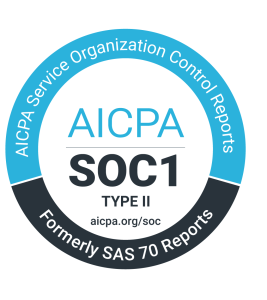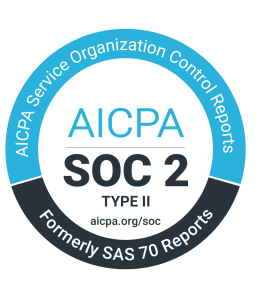The American public supports legalizing cannabis by a whopping 68 percent according to a 2020 Gallup Poll, and the overall cannabis marketplace retains a healthy economic outlook for years to come. The cannabis industry is unlike any other; it’s wellness-based, agricultural, yet utilizes high tech manufacturing and testing processes. Banking access is complicated, and over the last few years, it’s been a fast-paced, wild west approach to creating an industry. It’s easy to forget that we’re still in the early stages, and incredible opportunities abound. This is especially true in the 13 states that permit adult-use cannabis sales. If you’re contemplating opening a cannabis business, no matter what business sector you’re considering, you’ll need to know how to write a cannabis business plan. It’s not something that happens over a weekend, but once your business plan is in place, you’re ready to start building a cannabis business.
In the regulated cannabis marketplace, applying for a local or state cannabis business license can be a complicated, time-consuming endeavor. Potential owners must prepare an extensive, thoroughly researched business plan for creating a successful cannabis company. It is a serious endeavor. For example, the city of Pasadena, California, rejected a cannabis license applicant due to insufficient business plans. The rejection document stated, “The application failed to follow the guideline procedures and lacked sufficient detail. Most of the application consisted of marketing statics from cannabis resources. The application failed to demonstrate extensive experience that is directly applicable to operating as a cannabis retailer.” Here’s some solid advice; don’t be that company.
How to Write a Cannabis Business Plan
A business plan for a cultivation farm differs from a strategy created for a retail dispensary. However, a carefully crafted plan should contain similar, information-laden elements and bona fide, accurate research, and analysis. For starters, what information does your city, county, or state require for a license application? Your plan must address it. Check government cannabis portals for information as they may provide info similar to California’s state-level application instructions. You may even need various plans: one for regulatory agencies, another for potential investors, and an internal plan for company operations, management, and policies.
Again business plans will differ based on the type of cannabis business, the state, and location, but here are some common elements of a comprehensive business plan:
Cover Page
Your business plan needs to make an excellent first impression so ensure the title page conveys a professional dynamic. If possible at this stage, you may want to incorporate your initial branding guidelines to visually represent the company’s mission statement, the proper tone, and the potential demographics of your customers.
Table of Contents
Readers will continually refer to different aspects of your plan, so make it easy for them to locate specific topics in the table of contents.
Executive Summary
You must provide an executive summary of the business. Think of it as a 30,000-foot view of your company’s plans. The three to five-page summary should contain the company’s mission statement, general description, and the type of legal entity, whether it’s a sole proprietorship, general partnership, limited partnership, Type C, or S Corporation. Because the legal structure dictates many of the entity’s operational functions and tax liability, it’s a smart move to seek legal advice before creating the business plan. The executive summary should also include the company’s location, brief founders and executive team information, and pertinent financial highlights.
Market Overview, Opportunities, and SWOT Analysis
This section is essentially your competitive analysis. It must be a thorough review of your sector’s landscape and how you will thrive within it. SWOT stands for Strengths, Weaknesses, Opportunities, and Threats. It’s both an internal and external analysis of factors that may positively or negatively affect your business. In short, how do you plan to succeed, and what are your competitors doing? How will you differentiate your business from them? An apples-to-apples comparison is appropriate so keep the analysis focused on your business sector.
Marketing and Sales Strategy
Don’t be like the company in Pasadena that used random cannabis marketing statistics and tried to pass them off as specific company research. Your business plan must convey detailed information about marketing your company and growing sales. The business plan sets the initial ground rules for developing the marketing and sales strategy. For example, an independent dispensary will require a different marketing and sales strategy than an MSO.
Financial and Sales Structure
An objective, rational analysis of funding sources, investment opportunities, expenses, and cash flow is critical to the business’s success. Even if the company might not be profitable right out of the gate, it is essential to plan for various contingencies. This includes:
- Sales Forecast
- Expenses
- Projected Profit and Loss
- Cash Flow
- Balance Sheet
- Taxes
Organizational Structure and Management
The business plan must provide information about the founders, executive team, and the board of directors (if any) running the business. This is crucially important for potential investors, and most government cannabis license applications require companies to identify their primary individuals involved. This also relates to the entity structure and the role of officers, LLC members, board members, partners, etc.
Operating Plan
A solid business plan is the company’s bible for running the business. In reality, the operating plan is the execution side of the strategic analysis. Elements include:
- Setting Departmental Goals and Objectives
- Budgeting
- Mid-level Management, Staffing, and Human Resources Requirements
- Implementation Timetables
- Identifying, Monitoring, and Measuring/ROI Parameters
- Administrative Procedures and Governance Guidelines
Location and Site Security
If your company touches the plant, it must operate in designated areas zoned for cannabis. Your business plan has to include your due diligence research for the business’s permissible location and security needs. Companies must comply with cannabis building codes down to the square inch, including employee access to restricted areas and video surveillance systems. Other building attributes include:
- Site Design, Floor Plan, and Build Out
- Reception Area/Patient Intake
- Signage
- Environmental, including cannabis waste destruction
- Operating Hours
What Can Go Wrong?
For perspective, we contacted Avis Bulbuyan, the CEO of SIVA Enterprises, a full-service cannabis business development and solutions firm that provides cannabis consulting and other services across the U.S. “A big mistake is that companies will have a certain idea or certain business plan they’re looking to execute, and they want to give the investor the confidence that if things don’t go as planned, they have options to pivot,” Avis said. “Sometimes companies get carried away with the different pivot options and end up convoluting or distracting themselves from the actual focus of the company by addressing all the ‘what if’ scenarios.”
When it comes down to writing the plan itself, Avis feels that it’s a mistake to greatly elaborate on the overall market or industry size. “The investor that’s looking at cannabis already has an idea of the size of the market or the growth potential. A lot of companies go overboard by trying to sell the industry or the potential size of the market and not their actual company,” Avis explained.
Strategic Cannabis Advisor, Lynn Mack, MBA, agrees with Avis that focus is essential for success. “Pick a lane and stay in it! Are you medical, recreational, or both? Who is your target market? Market to them and plan accordingly,” she says. Lynn strongly advises that “You must choose great business partners, especially for branding and distribution.” She also believes that dispensary owners must plan for the truism of “Location! Location! Location! with adequate and accessible dispensary parking. The best plan in the world won’t save your business if customers don’t visit your store.”
The Future, Unbound
Writing a business plan offers a glimpse into your future. Even with changes along the way, a solid, well-crafted business plan will keep you headed in the right direction. It’s essential to take the time and create a meaningful, professional document. For help, check the many resources available to you in your state. In California, for example, information about entity formation and business structure can be found at the California Business Portal. While cannabis remains illegal at the federal level, you can still take advantage of U.S. government publications like how to write a business plan from the Small Business Administration. We also encourage you to seek advice from professional consultants, accountants, and attorneys when preparing a business plan.



